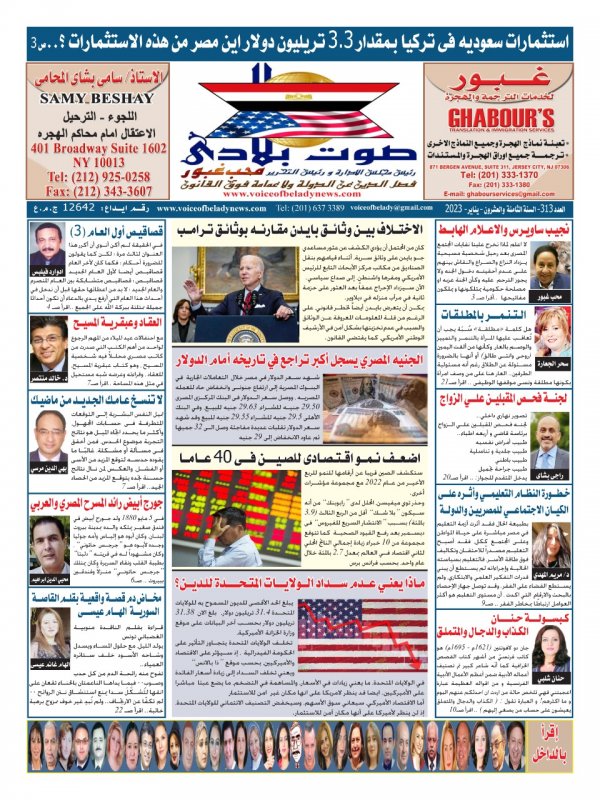Episode 1
1- Concept of Globalization
2- History of Globalization
3- Causes of Globalization
4- Consequences of Globalization
5- Types of Globalization
6 Example: Cultural globalization
The Concept of Globalization
1-The Concept of globalization, comes from verb globalize, it is means diffusion, expansion, and they are other synonyms like, dispersion, pervasion, and scattering.
2- The globalization is the process of interaction and integration in all societies in the world: people, goods, knowledges, sciences, and all sorts of the arts
3- the Globalization is interaction , and integration , economic system , politic system , social system , and cultural system , education system in the glob between countries .
4- The globalization is diffusion in the glob, all sort of technology all sort of Transports, industries, all type of tools of mass-media; computers, mobile phone.
5- The globalization is expansion, all manner of the information like, newspapers, internet, skip, watsapp, facebook, TV.
6-The globalization is expansion of all the types of economy in the glob , like trade, business management, markets, banks, capitals, labours, transactions, investment movements, multinational companies.
7- The globalization is linked with giving solutions to international problems in the glob like, immigration, terrorism, environmental challenges such as global warming, cross-boundary water, air pollution, and over fishing of the ocean.
Episode 2
The history of Globalization
We cant not talk about globalisation without talking about its history .
* The globalization existed in deep history as he says an economist Andre Gunder Frank who is the owner dependency theory, this economist says that the globalization has been in existence since the rise of trade links between Sumer and Indus Valley civilization in the third millennium before Christ.
* There is another form of globalization of economy and culture in history, known as Archaic globalization, existed during the Hellenistic age, when the urban centres focused commercialization around the axis of Greek culture, and stretched from India to Spain, with such cities, as Alexandra, Athens, and the others cities as the centres of the international trade .
This commercialization in the urban centres in the glob, and this international trade created Cosmopolitan culture.
* Also there is another form of globalization is the trade links between the Roman Empire and the Parthian Empire, and the Han Dynasty of China.
These powers increased an articulation of commercial links between them, and they established and developed the silk road which started in western China reached the boundaries of the Parthian Empire and continued towards Rome.
________________________________________________
Episode 3
* In this case we cant also forget the Islamic Golden age, it was also an Important early stage of globalization, when Muslim traders and explores established sustained economy across the world establishing the globalization of the corps, trade, knowledge, philosophy, and sciences in this period, obviously it would be a great necessity of learning Arabic as international language in the world.
* we find also Thomas Friedman considers that globalization has the roots in history, hence he divides the history of globalization into three periods ;
* The first globalization is between 1492-1800, he states that globalization involved the globalization of countries.
in this case, we can say it is a political globalization, the territorial expansion through the world by the invasions of the classical empires to all five continents;
- Portuguese Empire
- Spanish Empire
- British Empire
- Dutch Empire
- Arabic and Muslim empire
* the second globalization is between 1800 - 2000 he says that
Globalization involved the globalization of companies.
For me in the other words I can call it the economical globalization by moving the capitals and the labours through the globe, and expansion of multinational companies established by the classical empire in antiquity;
- Like British East India company, founded in 16 00.
- And like Dutch East India company, founded in 16 02
This globalization is founded by international trade, capital, and labour mobility coupled with decreased transport costs led to a smaller world.
*The third globalization is from -2000 until present - he declares that globalization involves the globalization of individuals. In other side is the cultural globalization, it mains expansion de different cultures from many countries from Europe, from North America, from Latino America, from Asia, and from Africa through the world. This cultural globalization is established by mobility of individuals and culture by Improvement the tools of mass-media; newspapers, network of TV, internet and diffusion of knowledges an informations, and tourism, by decreasing transport costs led to any part of the world.
________________________________________________
Episode 4
The Causes of globalization
1- The first cause; Economy as cause of globalization
2- The second cause; Improvement transport
as cause of globalization
3- The third cause; Improvement technology
Of the medium of communication, as cause of globalization
The Causes of globalization
The first cause; Economy as cause of globalization
Expansion and growth of multinational companies, in many economies and in many countries.
The reduction of tariff barriers encourages global trade, often this becomes legal and a right in the word with the support of the WTO.
________________________________________________
Episode 5
Economic growth and trade cycle are global in nature, because all countries are interconnected increasingly between them, that means the recession in one country can affect other countries and destabilise global economy, and global trade, so this led to an economic downturn
Expansion of financial system, and capitals in the word. This expansion manages and controls all the Banks in the glob. And also affects then, for example when US Banks suffered downturn, and loses, US Banks affected all banks in other countries.
Improvement mobility of capitals in the world, by reduction barriers, this mobility makes capitals moving easier through different economies, and different countries. This mobility gives to the firms the ability to receive finance, and increases the globalization interconnectedness of international financial markets.
Mobility of labour, leads lot of people to have willing to move to different countries in order of searching for work. This mobility of labour increases the transfer the remittances from developed countries to developing countries.
________________________________________________
Episode 6
The second cause; Improvement transport
as cause of globalization
We know that international trade, expansion economy, and moving labour and people, need the travels; travel by rails, travel by air, and travel bus. This travels need also the Improvement transports;
The technology improves the transport better than the past. The technology creates the plane, the ship, the bus, and the container. This transport makes fast and easier moving goods, people through the world.
Redaction of the cost transport leads to the expansion of international trade, and growth of the tourism.
Also we find containerisation by the steel transport container reduced the cost of inter-model transport, making trade fast, cheaper, and more guaranteed.
________________________________________________
Episode 7
The third cause; Improvement technology
Of the medium of communication, as cuse of globalization
The modern technology creates industry of the medium of communication; like computer, TV and networks of TV, news paper, internet, mobile, skip watsapp, facebook, twitter, and electronic channels, you tube. They facilitated communication between people in the world, this medium of communication, making the world as a small village. Any information, any incident any area in the glob, was be shared between people and countries.
The industry of medium of communication leads to the diffusion and expansion; sciences, different knowledge, different cultures of countries, arts; literature, theatre through the glob.
________________________________________________
Episode 8
Consequences of globalization
*Positive consequences
1- Foreign trade
Globalization has created foreign trade in the world, and expanded in the globe. The foreign trade becomes a necessity for all countries in the world. There is collaboration between countries to meet the needs of people.
2- Global market
The Impact of globalization on business management is seen the increase of number of transaction across the borders. In this case it becomes necessary to establish global market to promote foreign trade products. The global market is the field of economic competition between multinational companies.
3- Foreign investment
Globalization encourages the expansion of foreign investment in the world. The benefit of globalization is the flow of foreign capital in many countries.
________________________________________________
Episode 9
4- Competition between countries
Competition between countries for destruction of poverty, and famine, and diseases, and illiteracy and ignorance.
5- Improvement sciences and knowledge
Competition between countries for improvement; scientific research. Competition to promote creativity innovation in knowledge, and in different areas of art. Competition for improved education.
6- Cross-cultural management
There are the positive effects of globalization on culture. Received different cultures from the globe helps to have good human practices. The world that we live in today is result of different and several cultures.
7- Improvement communication
Expansion of different language in the world. It makes easier people communicated between them. The language is the key of the foreign culture
9- Employment situation
From different countries people are provided with job opportunities within the globe. It has created an action of outsourcing; all countries prefer to provide work to developing countries where costs are cheap. They Import workers from abroad.
10- Technology
The technology power force that drives the world toward a converging commonality. Communication, transport, and travel.
________________________________________________
Episode 10
*Negative consequences
1- Brain Immigrate
2-jobs insecurity in developed country people have jobs insecurity. People are losing their jobs. Developed nations have outsourced manufacturing. That means less jobs for their people.
3- Domination of western culture
4- Destruction of indigenous cultures
The types of Globalization
Academic literature usually subdivides globalization into five major fields:
economic globalization
political globalization
technological globalization
social and cultural globalization
1- Economic globalization
Globalization begins by economy, only person can not satisfy all human needs only by himself alone, and can not meet his needs alone. He must cooperate with others in meeting his needs. The same problem for the one country, it can not meet the needs of their citizens depending on their economy alone. But it must cooperate with others country, to make the trade of all sort of goods and crops. And looks for the sources of food, raw materials, technology and so on.. As a result the economy of countries is interconnected through the exchange of resources, products and money. For this reason we find all countries in the glob are obliged to enter in globalization by force and needs without its will. The prove of this economic globalization, when an economy crashes it affects other economies in the world.
_______________________________________________
Episode 11
political globalization
The global trade and the global economy, its need political cooperation between different countries, this political cooperation prevents conflicts and prevents crash economy. In this case the countries create global organizations in any fields as for example the United Nations, and the world Trade Organization. Those global organizations are working on the development of laws and regulations governing the world, and maintaining order in the world. Its diffuse also the patterns of politic as democratic, and human rights. This is which called political globalization.
3- Technological globalization
The technology has swept all countries in the world, even the developing countries; everyone owns technology from simple man to rich man. We are now in technological globalization.
4-social and cultural globalization
This means sharing ideas, knowledge, sciences, arts, between nations. This cultural globalization leads nations to one culture, and erodes differences between cultures. This cultural globalization is established by the technology of mass-media.
The universality of sciences, knowledge, arts, cultures, in the world, makes the same pattern of the comportment, the same pattern of action, the same pattern of reaction, the same pattern of cuisine, the same pattern of distraction, the same pattern of celebration, the same pattern of the problems when all people. Now the world has cosmological culture, all persons at present became a citizen of the world
________________________________________________
Episode 12
Example of globalization: cultural globalization
Cultural globalization is sharing between the people in the globe sciences, and all sort of knowledge history philosophy, anthropology, and so on, and arts in different fields. There are no boundaries between cultures due to the expansion of technology of information and mass-media.
There is another form of cultural globalization, globalization of comportments and behaviors through the world. And the extension and intensification social relations between countries and between people by the technology of information and mass-media.
This process of extension and identification leads to consumption of different cultures in the world by the technology of information and mass-media.
The world becomes as a small village, and people become as the citizens of the world.
Phases of cultural globalization
1- Pre-modern phase globalization
) early civilization (
2- modern phase of globalization
3 contemporary phase of globaliwation
1945 (present)
choukri abdeljabbar
Psychologist , socilogist , poet and novelist .




 رئيس التحرير يكتب : من التراب وإلى التراب يعود .. تحويل جثث الموتى إلى سماد عضوى
رئيس التحرير يكتب : من التراب وإلى التراب يعود .. تحويل جثث الموتى إلى سماد عضوى
 رئيس التحرير يكتب : لماذا تصر الحكومة على استمرار شريف أبو النجا رئيسا لمستشفى 57357 رغم الشواهد العديدة على فساده
رئيس التحرير يكتب : لماذا تصر الحكومة على استمرار شريف أبو النجا رئيسا لمستشفى 57357 رغم الشواهد العديدة على فساده اقرأ في العدد الجديد ( عدد يناير ٢٠٢٣ ) من جريدة صوت بلادي
اقرأ في العدد الجديد ( عدد يناير ٢٠٢٣ ) من جريدة صوت بلادي









